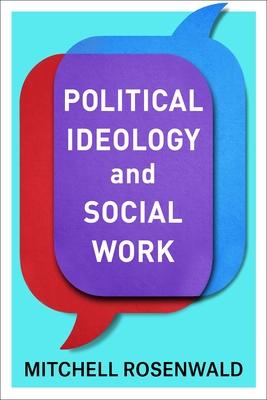Social workers encounter politically fraught issues in many aspects of their professional lives. They must make decisions that touch on topics such as abortion, family planning, end-of-life care, immigration rights, economic assistance, and racial inequality, among many others. How do personal political beliefs influence social workers' education and training, practice with clients and communities, and efforts to achieve social change?
Mitchell Rosenwald provides a comprehensive examination of the role of politics in the social work profession. He discusses how political ideology relates to social work education and practice at all levels, identifying and analyzing the strands of thought that have shaped the profession's history up to the present day. This book examines how social workers strive to balance their personal views with the professional obligation to provide therapy, case management, and information and referral to their clients. It explores how the social work profession struggles to encourage and support political diversity among its members and what happens when an individual's political beliefs challenge commonly held attitudes. Considering both clinical and policy work, Political Ideology and Social Work also offers recommendations for encouraging political reconciliation in order to strengthen the profession.
Social workers encounter politically fraught issues in many aspects of their professional lives. They must make decisions that touch on topics such as abortion, family planning, end-of-life care, immigration rights, economic assistance, and racial inequality, among many others. How do personal political beliefs influence social workers' education and training, practice with clients and communities, and efforts to achieve social change?
Mitchell Rosenwald provides a comprehensive examination of the role of politics in the social work profession. He discusses how political ideology relates to social work education and practice at all levels, identifying and analyzing the strands of thought that have shaped the profession's history up to the present day. This book examines how social workers strive to balance their personal views with the professional obligation to provide therapy, case management, and information and referral to their clients. It explores how the social work profession struggles to encourage and support political diversity among its members and what happens when an individual's political beliefs challenge commonly held attitudes. Considering both clinical and policy work, Political Ideology and Social Work also offers recommendations for encouraging political reconciliation in order to strengthen the profession.Hardcover
$133.33